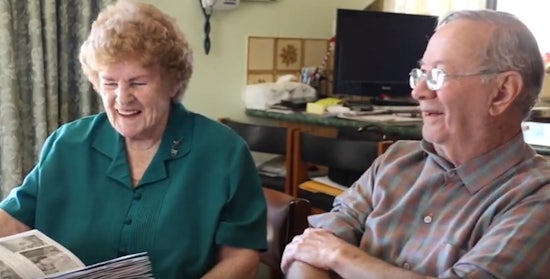Life experiences included in dementia training
Giving employees a greater understanding of how best to manage clients and patients living with dementia, Bendigo Community Health Services (BCHS) has developed a staff training program based on firsthand accounts of people living with the disease.

Training in dementia was seen as a priority for the not-for-profit community organisation, which employs over 200 staff and provides more than 50 programs across the region.
Over the past 18 months, BCHS staff engaged people with dementia, partners, families and carers to learn how the disease impacts lives and the community. Team members in BCHS’s Community Connections project visited people living with dementia in their homes, joined walking groups and spent time in dementia cafes.
“We got a greater understanding of what it is like to be living with dementia by going into the homes and having a coffee with people and their carers,” says Anne-Marie Kelly, Organisational Development Project Worker.
The sessions also included visiting people from CALD backgrounds, and Ms Kelly confirms the organisation had been working with Bendigo NAIDOC and other parts of the community, including Bendigo’s Karen population. “Their view is completely different to ours; they have less experience of dementia as their as life expectancy is shorter in their own country,” she highlights.
As part of the training resources, four local people living with dementia have been filmed explaining what it is like living with dementia and their life before and post diagnosis. Ms Kelly says the videos also provide an insight into the ageing process with some people getting lonelier. “And they are an opportunity to see a person in real time expressing emotion,” she says.
Ms Kelly says the four videos were well received at a recent screening to an audience consisting of both health professionals and the wider community. “The event partly served so that people involved with the videos could see what we’d been working on,” she explains. “At the end, people were coming up and saying ‘Thank you for providing that story. You could see the difference things made’.”
BCHS’s dementia training will cover a variety of topics including explaining the different types of dementia, how to communicate to people living with dementia and there will be GP specific training too. The training and resources will be available online.
The training is trialling throughout BCHS in the next couple of months and after discussions with the Board, it is hoped the resource will be available to other organisations.























